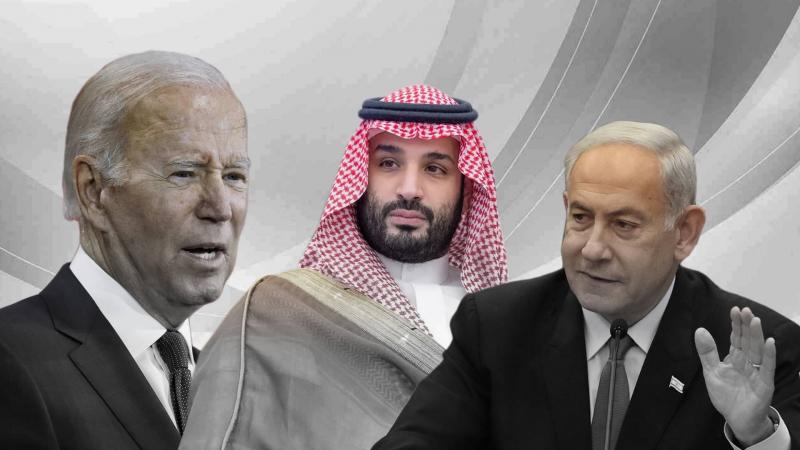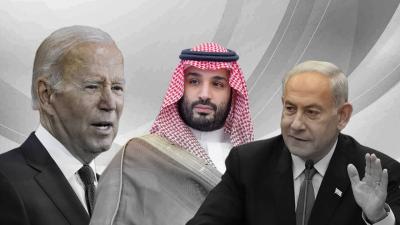Three regional sources familiar with the talks confirmed that Saudi Arabia is determined to reach a military agreement that obligates the United States to defend it in exchange for normalizing relations with Israel, and it will not stall the agreement even if Israel does not make significant concessions to the Palestinians for the establishment of an independent state. The agreement may not rise to the level of strict defense guarantees akin to those sought by the kingdom initially when this issue was first discussed between Crown Prince Mohammed bin Salman and U.S. President Joe Biden during his visit to the kingdom in July 2022.
An American source stated that the agreement could resemble treaties that the United States has signed with Asian countries, or, if it does not receive Congressional approval, it might be similar to the U.S. agreement with Bahrain, which hosts the U.S. Fifth Fleet. Such agreements do not require Congressional support. The source noted that Washington could also enhance any agreement by designating Saudi Arabia as a major non-NATO ally, a status already granted to Israel.
However, all sources indicated that Saudi Arabia would not accept anything less than binding guarantees from the United States to protect it if attacked, similar to the missile strikes on its oil facilities on September 14, 2019, which shook global markets. Riyadh and Washington accused Iran, the kingdom's regional rival, of carrying out these strikes, but Iran denied any involvement.
An agreement with Israel could help reshape the Middle East. Establishing a deal that provides U.S. protection to the world's largest oil exporter in exchange for normalization with Israel could transform the region by bringing together two long-standing adversaries and linking Riyadh to Washington amid China's interventions in the area. This would be a diplomatic victory for Biden to showcase before the U.S. elections in 2024.
The Palestinians may receive some easing of certain Israeli restrictions, but such moves will not meet their aspirations for statehood. The three regional sources familiar with the talks stated that, similar to other agreements reached by Arabs and Israel over the decades, the Palestinians' fundamental demand for an independent state will be a secondary priority. One source said, "Normalization will be between Israel and Saudi Arabia. If the Palestinians oppose it, the kingdom will proceed on its path." The source added, "Saudi Arabia supports a peace plan for the Palestinians, but this time it wants something for itself, not just for the Palestinians."




